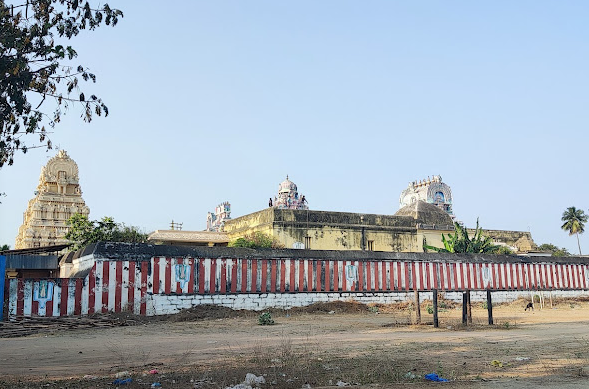King Upamanyu lost his powers due to a curse from Sage Durvasa. When he begged for pardon and relief, the sage instructed that the king should feed one lakh people in a place then known as Palasavanam to be relieved of the curse. The king built a palace nearby and commenced the feeding.
One day, Lord Sriman Narayanan-Perumal appeared there disguised as an aged Brahmin. The Brahmin was served food, and to test the king's determination, the Lord consumed the entire quantity of food prepared for the day. The king politely asked the Brahmin if He wanted anything more. The Brahmin replied that He wanted one pot of Appam. As soon as the king provided the pot of Appam, his curse vanished. This story is recounted in the Sthala Purana.
